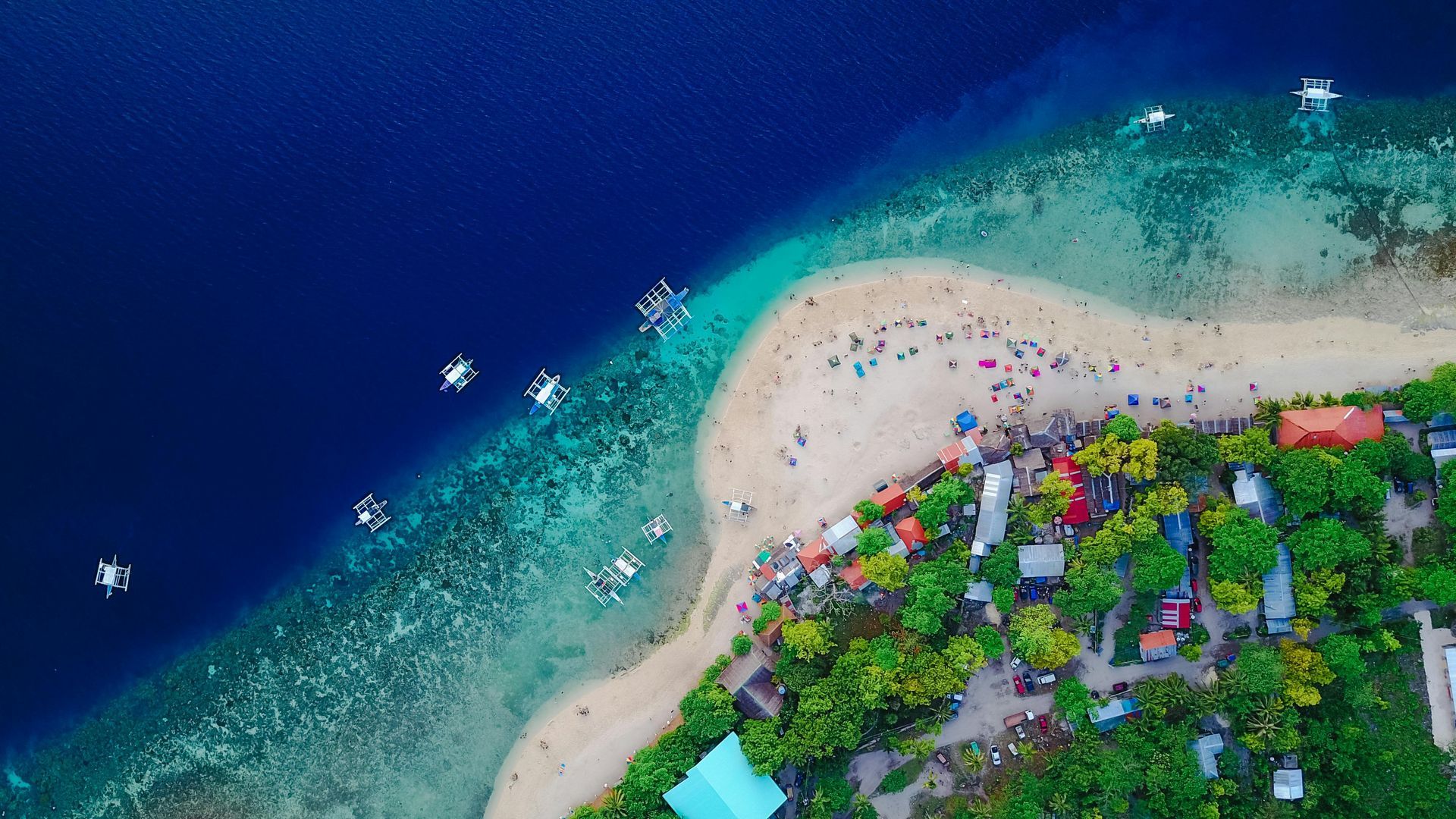🐠 Discover Palawan’s Underwater Paradise—From Vibrant Coral Gardens to Secret Turtle Sanctuaries
🐠 Discover Palawan’s Underwater Paradise—From Vibrant Coral Gardens to Secret Turtle Sanctuaries
Port Barton, a tranquil fishing village in Palawan, Philippines, is often overshadowed by its famous neighbors El Nido and Coron. Yet, beneath its crystal-clear waters lies a snorkeler’s paradise: vibrant coral reefs, thriving marine ecosystems, and secluded spots where sea turtles glide gracefully past visitors. While most guides focus on surface-level highlights, this comprehensive guide dives deeper—revealing hidden snorkeling gems, sustainable practices, and expert tips to help you experience Port Barton’s underwater world like a local.
Why Snorkel in Port Barton?
Port Barton offers a unique blend of accessibility and unspoiled beauty. Unlike crowded sites in El Nido, its reefs remain pristine due to community-led conservation and lower tourist numbers . Here’s what makes it special:
- Rich Biodiversity: Home to 300+ fish species, including parrotfish, angelfish, and blacktip reef sharks.
- Coral Health: Reefs boast 70% live coral cover—higher than the Philippine average—thanks to regulated tourism .
- Crowd-Free Experience: Most sites host ≤2 tour groups daily, ensuring intimate encounters with marine life .
Top Snorkeling Sites in Port Barton
1. Twin Reef: The Coral Labyrinth
- Highlights: Two parallel coral walls teeming with clownfish, butterflyfish, and giant clams. Depth: 3–8 meters, ideal for beginners.
- Unique Insight: Visit at mid-tide (check local charts) when visibility exceeds 20 meters, revealing hidden crevices with nudibranchs and moray eels .
- How to Reach: Included in standard island-hopping tours (₱1,500/$26).
2. Fantastic Reef: The Deep Reef Experience
- Highlights: A deeper site (8–12 meters) with massive brain corals and schools of barracuda. Advanced snorkelers can explore drop-offs.
- Unique Insight: Rare black coral trees grow here—a sight typically reserved for divers .
- Conservation Note: Avoid touching corals; currents can push snorkelers into fragile formations.
3. Turtle Spot: Sanctuary of Gentle Giants
- Highlights: Green sea turtles feed on seagrass beds in shallow waters (2–5 meters). Sightings are 90% likely in dry season .
- Ethical Guidelines: Maintain 3-meter distance; turtles surface every 15 minutes to breathe—observe quietly.
- How to Reach: Boat captains know exact coordinates near German Island.
4. Small Lagoon Reef: The Hidden Cove
- Highlights: A sheltered lagoon with porcelain crabs, neon damselfish, and occasional reef sharks.
- Unique Insight: Snorkel at sunrise for bioluminescent plankton—a rare phenomenon few tourists witness .
5. Wide Reef: The Macro Photography Haven
- Highlights: Shallow coral gardens (1–4 meters) perfect for spotting seahorses, ghost pipefish, and harlequin shrimp.
- Pro Tip: Bring a red filter for your camera to enhance colors in deeper sections .
Hidden Gems: Beyond the Tourist Trail
Boayan Island’s Shipwreck
- A sunken fishing boat (depth: 5 meters) attracts batfish, lionfish, and snappers. Accessible via private tour only .
Pamuayan Beach’s House Reef
- Snorkel straight from the shore to see garden eels and stingrays. Reward yourself with grilled eggplant at Evio’s Kitchen post-snorkel .
Marine Life Calendar: When to See What
Species Best Viewing Period Likelihood
Sea Turtles November–May ⭐⭐⭐⭐⭐
Whale Sharks April–June ⭐⭐ (rare)
Manta Rays July–September ⭐⭐⭐
Bioluminescence New Moon Nights ⭐⭐⭐⭐
How to Plan Your Snorkeling Trip
Booking Tours vs. DIY
- Group Tours: Cost ₱1,200–₱1,500 ($21–$26), include lunch and gear. Opt for eco-operators like Tour Z Tours that avoid crowded sites .
- Private Boat: Rent for ₱6,000 (4 Pax) ($105) and customize your route. Request stops at Twin Reef (morning) and Turtle Spot (afternoon) .
- DIY Kayak Snorkeling: Paddle to White Beach Reef (rental: ₱500/$8 daily). Pack a dry bag and reef-safe sunscreen .
Essential Gear Tips
- Bring Your Own Mask/Snorkel: Rental gear may leak. Full-face masks are banned in Port Barton due to safety concerns.
- Anti-Fog Hack: Rub crushed ginger inside your mask—a local trick to prevent fogging.
- Safety Gear: Wear a bright snorkel vest for visibility; boats have right-of-way.
Sustainable Snorkeling Practices
Port Barton’s reefs face threats from tourism and climate change. Here’s how to snorkel responsibly:
1. No Touching: Corals can die from contact. Avoid standing or dragging fins.
2. Reef-Safe Sunscreen: Chemicals like oxybenzone bleach corals. Use zinc-based alternatives.
3. Support Conservation: Pay the ₱50 ($1) environmental fee—it funds reef monitoring and cleanup
4. Report Damage: Alert guides to broken corals or entangled wildlife.
Insider Tips for an Unforgettable Experience
- Best Time to Snorkel: 7–10 AM (calm seas, optimal light). Avoid afternoons when winds pick up.
- Local Guides: Hire Tour Z, a local-turned-guide who knows turtle feeding spots.
- Underwater Photography: Rent a GoPro from Barton Bistro (₱500/$9). Use a floating handle for stability. On Tour Z tour, we embark a GoPro with us to film your best encounters.
- Post-Snorkel Relaxation: Enjoy ₱80 ($1.40) beers at Jungle Bar with panoramic views .
Key Considerations
- Weather: June–October brings rain and reduced visibility. Check forecasts before booking.
- Currents: Strong at Fantastic Reef. Beginners should use a life jacket.
- Marine Hazards: Jellyfish season (April–June); wear a rash guard.
✅ Conclusion: Dive Into Port Barton’s Secret World
Port Barton isn’t just an alternative to crowded snorkeling destinations—it’s a gateway to a thriving underwater universe where turtles swim beside you and corals glow in sapphire hues. By choosing eco-conscious operators, respecting marine life, and venturing beyond standard tours, you’ll discover why this hidden gem is Palawan’s best-kept secret.

